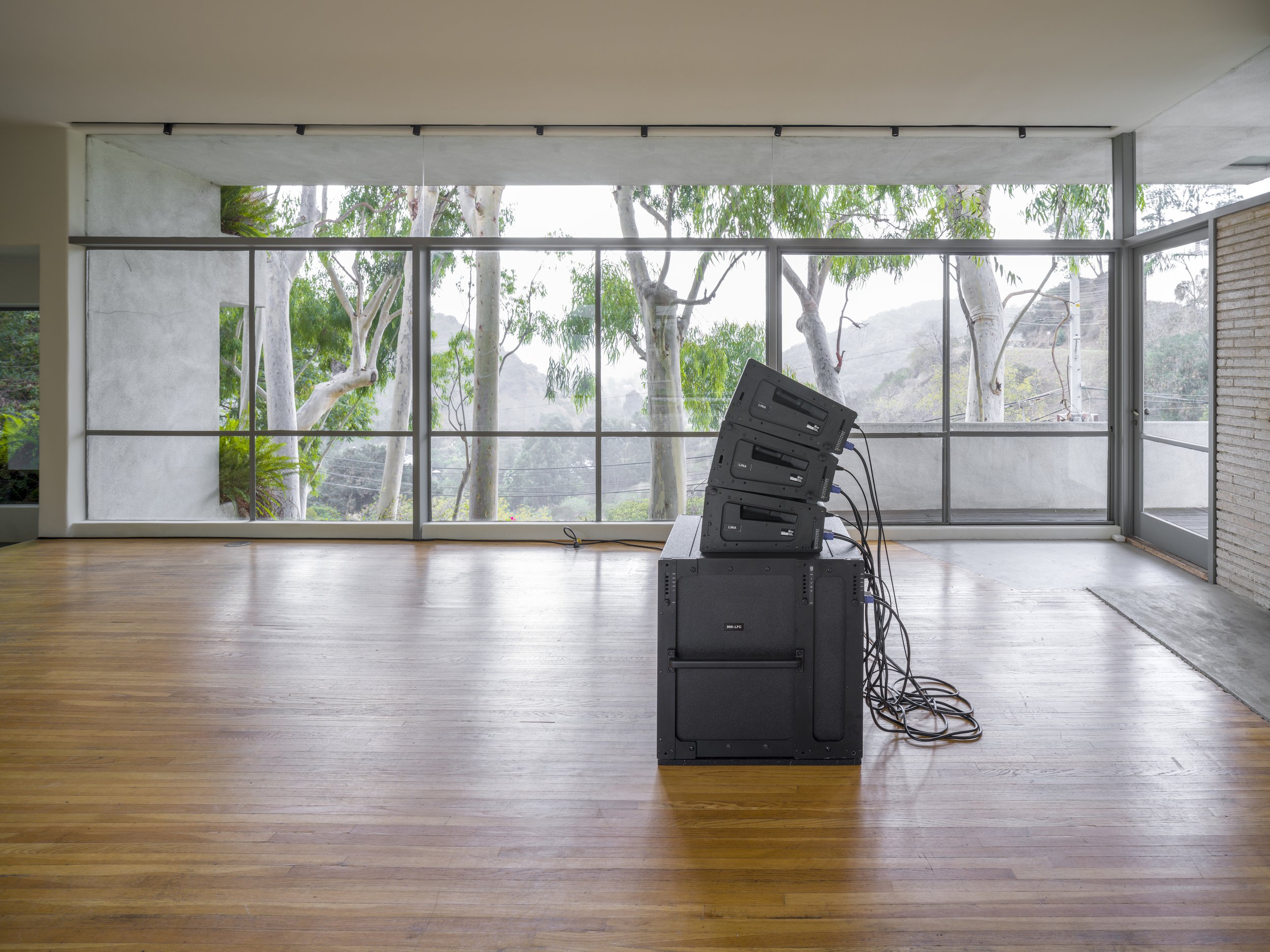2025 Researcher-in-Residence
The MAK Center for Art and Architecture and the SOM Foundation are pleased to announce that Pablo Castillo Luna has been awarded the 2025 Researcher-in-Residence.
Pablo Castillo Luna is a Canary Islands-born architect and educator who teaches at Cornell University’s College of Architecture, Art, and Planning. Castillo Luna will receive a $5,000 stipend and a six-week summer residency in Los Angeles in the live/work space at the MAK Center’s Fitzpatrick-Leland House, designed by R.M. Schindler (1936), for work related to his research proposal, A Permeable Atlas.
Pablo Castillo Luna
Pablo Castillo Luna is a Canary Islands-born architect and educator who teaches at Cornell University’s College of Architecture, Art, and Planning. He holds an MArch from Harvard Graduate School of Design, where he graduated with distinction and received the Architecture Faculty Design Award. He received a diploma in architecture from the University of Las Palmas de Gran Canaria. His work has been exhibited at the Harvard Arts FIRST Festival (Cambridge, 2023) and the Center for Architecture (New York, 2022) and published in Pidgin, Paprika!, and L’Atelier. Prior to Cornell University, he taught at the Rhode Island School of Design and Wentworth Institute of Technology. As cofounder of à la sauvette, an architecture practice dedicated to design, research, and cultural production, Castillo Luna has led award-winning projects honored by the Spanish Biennial of Architecture and Urbanism (2023) and the Future Architecture Platform (2020). à la sauvette’s work has been showcased at the Lisbon Architecture Triennale (2022), Driving the Human Festival in Berlin (2019), and The Movement Forum in London, Paris, and Lisbon (2019).
A Permeable Atlas
A Permeable Atlas engages in a research-based material and spatial study that makes visible the hidden circulations of water within architecture. The outcome will be a collection of drawings, maps, and prototypes documenting how water moves through buildings, landscapes, and bodies. This atlas will trace the relationships between historical water-harvesting techniques, contemporary infrastructural failures, and speculative architectural responses that embrace rather than resist water’s agency. It will serve as both a research archive and a design toolkit, offering strategies for working with seepage, condensation, and controlled dissolution as design tools rather than failures. At the culmination of the residency, Castillo Luna will present a public talk and a panel discussion to present the research, framing leakage, permeability, and water’s agency in architecture as central concerns in a time of climatic uncertainty.
For more information about A Permeable Atlas, please visit here.
2025 Research Topic
Advancing Toward a Water-Secure Future
As shared during the United Nations 2023 Water Conference, two billion people lack access to safe drinking water; 40 percent of the world’s population is affected by water scarcity; agriculture demands alone account for 70 percent of water usage; more than 90 percent of disasters are water-related; and pressure on freshwater is projected to increase by more than 40 percent by 2050.
From macro multinational ecosystems to microclimates, there is an urgent need for bold and collaborative solutions to a myriad of existing and future water-related challenges. This year, the SOM Foundation will direct its support toward proposals that address the complex relationship between water, people, and the built environment. Creating a sustainable, equitable, and water-secure future will require innovative and multidisciplinary ideas that shape long-term policies, define comprehensive plans, and identify immediate actions.
Residency Overview
The Researcher-in-Residence is a $5,000 award and four-to-eight-week summer residency at R.M. Schindler’s Fitzpatrick-Leland House in Los Angeles, California. The residency is awarded annually to an architect, artist, and/or researcher to conduct original research that contributes to the current topic. The Researcher-in-Residence Program was jointly established in 2024 by the MAK Center for Art and Architecture and the SOM Foundation to provide space and time for rigorous work that addresses pressing issues related to the built environment.
Outcomes
During the research period, the MAK Center and the SOM Foundation will schedule periodic check-ins with the recipient.
The MAK Center and the SOM Foundation will provide mentorship and networking support to recipients.
Each residency will culminate with a public talk or program related to the recipient’s research and interests. The nature of this program is flexible and will be proposed by the recipient and organized with MAK Center staff.
The public talk or program can present work in progress or can be final. Work and research conducted during the residency can be continued after the residency period. Research projects are not required to be directly related to Los Angeles in order to be considered.
FITZPATRICK-LELAND HOUSE
Each resident is given exceptional access to the three-level hillside house designed by R.M. Schindler.
HISTORY OF RESIDENCIES AT THE FITZ
From 2008-10 the Fitzpatrick-Leland House served as a base for the MAK Center’s Urban Future Initiative (UFI), a fellowship program in which cultural thinkers from diverse nations entered into dialogue about urban space with Los Angeles scholars and practitioners. The fellowship provided for two month residencies at the Fitzpatrick-Leland House to promote meaningful exchange between cultural thinkers and Los Angeles practitioners in order to explore the complexity of "the city" in relationship to the built environment, growth and migration, economics, politics, gender, and the natural environment. The fellowship’s mission was to cultivate visionary conceptions of the urban future. In 2022, in partnership with the Danish Art Foundation, the MAK Center hosted Chris Halstrøm and Pettersen-Hein as Designers-in-Residence.
Since then, the MAK Center has dedicated the house to small-scale events and the lodging of international cultural researchers visiting Los Angeles for artistic and scholarly pursuits.


